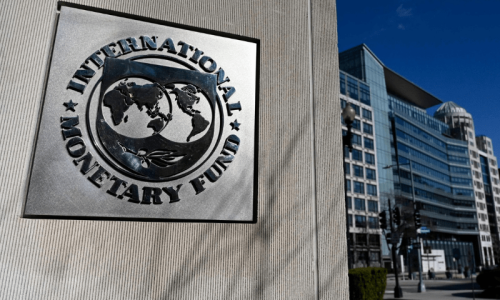ISLAMABAD: Amid struggling project implementation and calls for more transparency by multilateral and bilateral lenders, the caretaker government on Tuesday made a pitch for additional international financial support, particularly those relating to ‘debt for nature and debt for social development swaps’ to help Pakistan meet climate finance targets.
The appeal for additional financial support was made by Caretaker Finance Minister Dr Shamshad Akhtar at back-to-back engagements with lenders and development partners ahead of upcoming UN Climate Change Conference (COP-28) convened by UN Framework Convention on Climate Change (UNFCCC) from Nov 30 to Dec 12 in Dubai. The meetings were attended by representatives from all the key multilateral and bilateral lenders.
The minister has already shelved budget plans to launch conventional Eurobond citing adverse global financial market conditions and announced to make efforts for access to climate financing, including through relevant bonds like Environmental, Social and Governance (ESG), once credit rating improves following disbursement from the International Monetary Fund (IMF) of $700 million second tranche of the $3bn programme, also to be dovetailed by other multilaterals.
“As the government prepares for the upcoming COP-28, the finance minister “called for efforts to optimise the capital of Multilateral Development Banks (MDBs) and increase lending headroom,” said an official statement, adding that “the appeal for debt for nature and debt for social development swaps was reiterated, signalling a commitment to meeting climate finance targets”.
Shamshad to take up project delays with PM
The project preparation and implementation had, however, been a major challenge in disbursement of already committed funds from lenders even those relating to normal project financing pipelines, including flood rehabilitation schemes.
Both the IMF and the World Bank have been calling for above-board transparency and accountability in matters of foreign-funded projects, even those under the special-purpose vehicles like the China-Pakistan Economic Corridor (CPEC) and the Special Investment Facilitation Council (SIFC).
During the meetings, the representatives from the World Bank, European Union, Asian Development Bank (ADB), Islamic Development Bank, United States Assistance for International Development (USAID), United Nations Development Programme (UNDP), Germany, Japan, World Food Programme (WFP), International Fund for Agricultural Department (IFAD), and others “pledged continued support to the government of Pakistan and acknowledged the importance of transparency, alignment with government priorities, and the need for timely disbursement of committed support”, the statement said and congratulated successful IMF review.
Other development partners that attended the meeting also included Japan’s International Cooperation Agency (JICA), Korean International Cooperation Agency (KOICA), Agence Francaise Development, KfW and United Nations Children’s Fund (Unicef).
The project delays were noted as major source of concern. More than half of $6.7bn World Bank-funded projects had been found either problematic or unsatisfactory, and the situation with ADB-funded projects was no different.
Dr Shamshad Akhtar had to vent anger during the meeting and later in public over the situation. In a statement while expressing “concern over project delays, particularly those critically delayed, the minister pledged to bring these issues to the attention of the Prime Minister’s Office and provincial governments for their support in expediting project completion”.
She also appealed to donors for expertise and technical assistance to ensure timely implementation for the benefit of Pakistan’s socioeconomic development. While reviewing the federal portfolio of projects funded by ADB and the World Bank, the minister also underscored the critical role these projects play in socio-economic development, offering access to job markets and fostering economic mobility to lift people out of poverty.
Dr Akhtar emphasised the importance of the portfolio review to address implementation bottlenecks and meet disbursement targets for the current fiscal year and discussed in detail “both successful and problematic projects” for infrastructure restoration post the 2022 floods, border crossing point improvements, digital payments accessibility, housing finance, tax base broadening, adaptive social protection, and higher education sector enhancement.
She echoed the urgency of addressing problematic projects and stressed the need for clear deliverables with timelines to prevent time and cost overruns.
Published in Dawn, November 22nd, 2023














































Dear visitor, the comments section is undergoing an overhaul and will return soon.